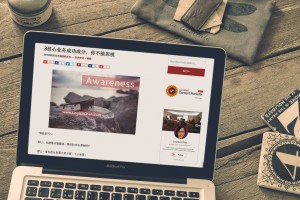If there was ever a catalyst to reimagine the events space, the coronavirus is it.
Over the years, corporate live events have transformed to include celebrity speakers, VIP access, exclusive private dinners, mobile-first ticketing, and a wide assortment of high production value add-ons—one of which being a film recording or, more recently, live streaming capabilities. But it wasn’t until the majority of the world went into quarantine that the concept of digital broadcasting went from being a cool addition to an in-person event to becoming its central focus.
Since the events business has become so large, there are companies that specialize in essentially every single one of those steps.
But with COVID-19, the entire events industry was suddenly put on hold. There are zero events happening right now in most of the world.
The entire strip of Las Vegas, which is the Mecca of live events, has only recently reopened—and is acting as a massive test to measure the resurgence of coronavirus cases. Hotels have either shut down or are operating at a tremendous loss. Convention centers are closed. Hundreds of thousands of jobs that depend on companies to fly people to major cities and host events are now on pause.
And the big question everyone is asking is, “What does all of this mean? What will the events industry become?”
The truth is, we are now having to imagine a world where maybe the best parts of a live event can be facilitated remotely. Maybe after the coronavirus, people won’t be as eager to hop on a plane to attend an event in person, when they could just as easily attend virtually. Maybe companies are going to have a harder time justifying spending so much on events when virtual events could be done for a fraction of the cost.
When it comes to reimagining what the events industry will look like in the near future, these are the four things we should all be thinking about.
1. Event workers will need to acquire new skills
Managing travel schedules, reserving banquet halls, and coordinating caterers are very different skills than digitally marketing a virtual event, solving bandwidth issues, and facilitating remote participation.
Companies of all sizes are going to need to take it upon themselves to facilitate this learning process. They are going to need to empower their employees to take it upon themselves to reimagine the future of events along with them—and let them know this is uncharted territory. And while these are very new skill sets for many of these people, much of their previous experience and awareness of events is still invaluable. Now it’s just a matter of applying it in a different context.
“Events” as a business isn’t going anywhere.
But the way events are being facilitated is certainly going to change.
2. Event networking will take on a variety of new forms.
One of the biggest benefits of attending an in-person event is the opportunity to meet other people.
The reason companies and event coordinators have always preferred in-person events to digital events in the past was because of the networking component. But with the coronavirus forcing people to work from home, we have seen so many new forms of networking emerge over platforms like Zoom, Slack, etc. These digital-first networking capabilities aren’t the same experience you get when you attend an in-person event, but the question everyone is asking now is, “Well, maybe they don’t have to be?”
The future of events is going to be a hybrid.
Events were always optimized for the in-person experience, but now they will become optimized for a variety of different ways people choose to watch and participate.
Digital events are here to stay, and physical experiences will soon become optional.
3. Like TED Talks, live events may move to center stage—while in-person attendance takes a backseat.
In-person events aren’t going to go away completely.
But even when the world reopens and people feel safe to travel again, this pandemic has shown us that virtual is actually quite effective. And when you consider that other companies have already proven this, a compelling case could be made for a future where virtual is prioritized over in-person.
For example: What is TED at the end of the day? It’s an event. But 95% of the people who listen to TED Talks are not at the actual event. They are rewatching the speeches on YouTube, or they’re listening to them on the app. TED proved, very early on, that while attending an event in-person can be a very cool experience, the vast majority of people are going to want to consume the content on their own time and schedule.
4. Business models for events will change.
Charging for access to an in-person event is very different than charging for virtual access.
In the simplest way, the customer views the two as completely separate experiences. In one scenario, you’re paying for a “trip.” What you’re really buying is the in-person attendance, the ability to rub shoulders with people you’d like to meet, to see renowned speakers up close, etc.
With a virtual event, on the other hand, the benefits are different. You can consume the content from the comfort of your own home. You can rewind, replay, and watch on your own schedule. You can enjoy the experience for a fraction of the cost (if you were to travel, pay for a hotel, etc.).
Right now, companies are scrambling to figure out what business models can (and should) be applied to virtual events.
And then there is the growing fatigue of sitting on endless Zoom and Teams calls all day. Events were supposed to be a break from the normal—the opportunity to do something different, learn, maybe get some new experiences. Not “another virtual meeting to go to”.
What the future of events looks like is an open question still that only time will tell. But the discovery process has officially begun.
Siddharth Taparia is senior vice president, head of Strategic Transformation and Partner Marketing at SAP.
(74)





